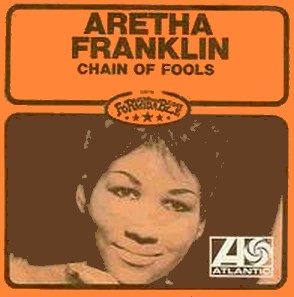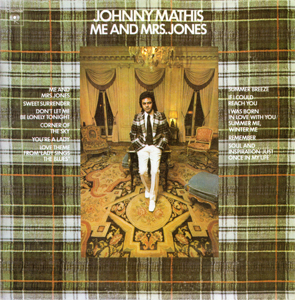
The Foundations were a British soul band who were primarily active between 1967 and 1970. The group's background was: West Indian, White British and Sri Lankan. Their 1967 debut single "Baby Now That I've Found You" reached number one in the UK and Canada, and number eleven in the US. Their 1968 single "Build Me Up Buttercup" reached number two in the UK and number three on the US Billboard Hot 100. The group was the first multi-racial group to have a number one hit in the UK in the 1960s.

Anthony Burrows is an English pop singer and recording artist. As a prolific session musician, Burrows was involved in several transatlantic hit singles throughout the late 1960s and early 1970s, most of which were one-hit wonders, including "Love Grows " by Edison Lighthouse, "United We Stand" by Brotherhood of Man, "My Baby Loves Lovin'" by White Plains, "Gimme Dat Ding" by the Pipkins and "Beach Baby" by the First Class.

Edison Lighthouse are an English pop band, formed in London in 1969. The band was best known for their 1970 hit single "Love Grows " recorded in late 1969.

The Sweet Inspirations are an American R&B girl group from Newark, New Jersey, founded by Cissy Houston, mostly known for their work as backup singers on studio recordings for other R&B and rock artists but also a Grammy-nominated recording act in their own right.

Roger Frederick Cook is an English singer, songwriter and record producer, who has written many hit records for other recording artists. He has also had a successful recording career in his own right.
Johnny Johnson and the Bandwagon were an American vocal soul group, prominent in the late 1960s and early 1970s. They were fronted by singer Johnny Johnson. They are probably remembered most for the catchy hit, "(Blame It) On the Pony Express".
Tony Macaulay is an English author, composer for musical theatre, and songwriter. He has won the British Academy of Songwriters, Composers and Authors Award twice as 'Songwriter of the Year'. He is a nine time Ivor Novello Awards winning songwriter. In 2007, he became the only British person to win the Edwin Forrest Award for outstanding contribution to the American theatre. Macaulay's best-known songs include "Baby Now That I've Found You" and "Build Me Up Buttercup" with The Foundations, "(Last Night) I Didn't Get to Sleep at All," as well as "Love Grows " and "Don't Give Up on Us".

"Love Grows (Where My Rosemary Goes)" is the debut single by Edison Lighthouse. The song reached the number one spot on the UK Singles Chart on the week ending 31 January 1970, where it remained for a total of five weeks. It also became the first number one single of the 1970s (not counting Rolf Harris's "Two Little Boys" which was a holdover from 1969).

"Think" is a song written by American singer Aretha Franklin and Ted White, and first recorded by Franklin. It was released as a single in 1968, from her Aretha Now album. The song reached No. 7 on the Billboard Hot 100, becoming Franklin's seventh top 10 hit in the United States. The song also reached number 1 on the magazine's Hot Rhythm & Blues Singles, becoming her sixth single to top the chart. Franklin re-recorded the song in the Atlantic Records New York studio for the soundtrack of the 1980 film The Blues Brothers and in 1989 for the album Through the Storm. Pitchfork placed it at number 15 on its list of "The 200 Greatest Songs of the 1960s".
"Superstar" is a 1969 song written by Bonnie Bramlett and Leon Russell, that has been a hit for many artists in different genres in the years since. The best-known versions are by the Carpenters in 1971, Luther Vandross in 1983, and Sonic Youth in 1994.

"Chain of Fools" is a song written by Don Covay. Aretha Franklin first released the song as a single in 1967 and subsequently it appeared on many of her albums. It hit number one on the Billboard Hot Rhythm & Blues chart and number two on Billboard's Hot 100 chart.

Alan Warner is an English musician who has been active from around the mid-1960s. He was a member of groups such as The Ramong Sound, The Foundations, Pluto, and The Polecats.
"(Sweet Sweet Baby) Since You've Been Gone" is a song by singer Aretha Franklin. Released from her Lady Soul album in 1968, the song was successful, debuting at number 31 and peaking at number 5 on the Hot 100 for five weeks, and spending three weeks at number 1 on the Hot Rhythm & Blues Singles chart. The B-side, "Ain't No Way", was also a hit, peaking at number 16 on the Billboard Hot 100 and number 9 on the Hot Rhythm & Blues Singles chart.
Colin Young is an English singer who led Joe E. Young & The Toniks in the 1960s. He is mainly known for being a member of the British soul band the Foundations. He also led a progressive rock band and was part of a hit making dance band of the 1980s.
"In the Bad Bad Old Days" was a hit for The Foundations in 1969. It was the fourth hit single for the group. It was written by Tony Macaulay and John McLeod. It went to #8 in the UK Singles Chart, #7 in Ireland, and #23 in Canada. It was also covered by Edison Lighthouse, and appeared on Johnny Johnson and the Bandwagon's Soul Survivor album.

20 Fantastic Hits is a compilation album that reached number 1 in the UK. It is a notable album in that it was the first ever - and ultimately most successful - LP by compilation label Arcade Records.

Me and Mrs. Jones is an album by American pop singer Johnny Mathis that was released in January 1973 by Columbia Records. While it does cover several big chart hits of the day like his last album, Song Sung Blue, did, it also includes songs that didn't make the US Top 40 or had never charted.

"Sweet Inspiration" is a song by the American soul group Johnny Johnson and the Bandwagon, the first single from their second album Soul Survivor, released in May 1970. It peaked at number 10 on the UK Singles Chart, becoming their second top-ten hit there.

Already is the debut album by British band Edison Lighthouse, released in 1971. It features three singles: both "Love Grows " and "It's Up to You Petula" became chart hits in the UK, US, Canada and New Zealand, while the third, "What's Happening", became a regional hit in Australia.

"Breakin' Down the Walls of Heartache" is a song written by Sandy Linzer and Denny Randell, and recorded by American soul group the Bandwagon, later known as Johnny Johnson and the Bandwagon. Whilst it was not very successful in the US, it was much more successful in the UK, where it peaked at number 4 on the Singles Chart and was awarded a silver disc for 250,000 sales there.














